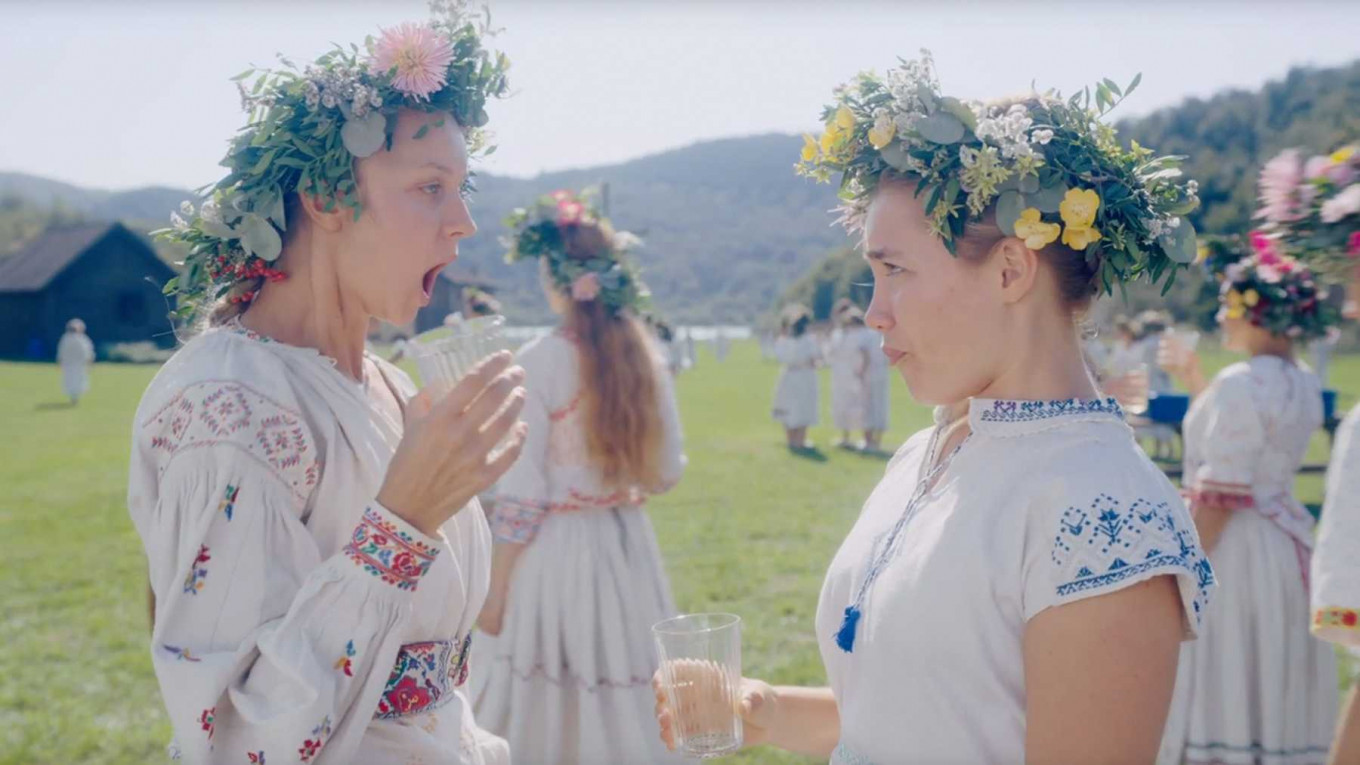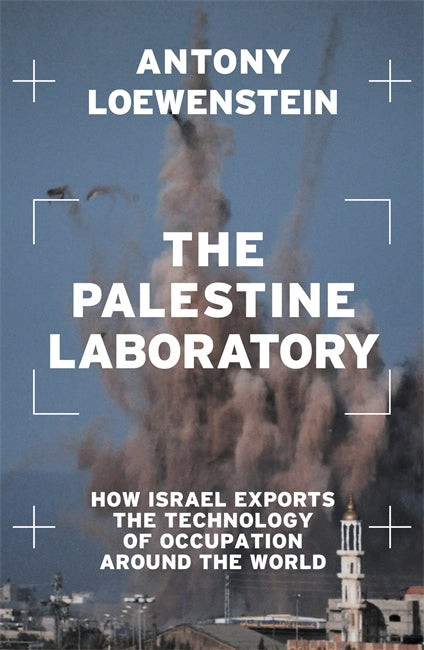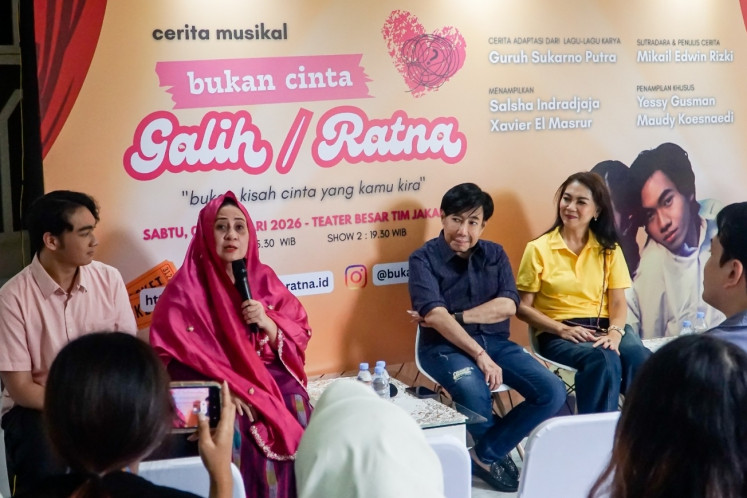Popular Reads
Top Results
Can't find what you're looking for?
View all search resultsPopular Reads
Top Results
Can't find what you're looking for?
View all search results'Midsommar': Study of grief in psychedelic folk horror story
From its exterior, Midsommar may just look like the expansion of what Ari Aster has masterfully did in Hereditary, a humane study about repressed grief, but as the film progresses, Midsommar becomes a much more layered story about home, family, the feeling of belonging and emotional needs.
Change text size
Gift Premium Articles
to Anyone
O
ver the past couple of years, the horror genre has rapidly grown into something that’s not limited to never-ending jump-scares or an exploitative farce of haunted mansions with shadowy creatures ready to pop our heart at any minute. In fact, it has grown into a much more visceral exploration on fear, insecurity, trauma, grief and even in the talented hand of Jordan Peele, it is excellently used to address social issues such as racism and class. In 2015, Robert Eggers made the bold, visionary horror film The Witch, in which suspicion mixes with fear and their power to break one unit is explored.
Last year, Ari Aster’s feature debut Hereditary offered an interesting exploration on grief through nightmarish imagery of horror. It delves into how an unspeakable force of past tragedy can gradually tear through a family in mourning. Just a year later, Aster is back with his second feature Midsommar, a profoundly disturbing yet weirdly hilarious psychedelic folk horror that delves much deeper into the emotions of a grief-ridden mentally ill young woman who finds herself stuck in a doomed, toxic relationship with a narcissistic self-centered man.
The story begins and ends with Dani, an Ativan-popping psychology grad student who’s worried that her bipolar sister might do something bad after she receives a frightening cryptic email hinting at self-harm from her. Dani, played with a perfect dose of empathy and complexity by Florence Pugh, eventually tries to reach her parents by phone but gets nothing in return. She feels overwhelmed by fear and anxiety but hesitates to seek comfort and solace from her boyfriend Christian, an anthropology grad student who’s been trying to break up with her for a year. Dani fears she will only appear as overreacting and burdening him with her personal stuff. “What if I’m scaring him off?” she asks a friend, who brushes her fear off and tells her that it’s exactly what a relationship is for, having someone that you know you can always count on.
This guilt and insecurity that Dani feels immediately sets the tone for what kind of relationship she has with Christian, a devastating picture of loneliness that’s far from the ideal foundation of any kind of human relations, romantic or not. When we see Christian minutes later sitting in a restaurant listening to his fellow dudebros (Josh, Mark and Pelle) urging him to dump Dani and start dating a girl who actually likes sex, it doesn’t come off as a surprise anymore.
Back in her home, Dani finally receives the news about her family. Her scream of grief and disbelief when she knows she’s now all alone is heard vividly through a phone call to Christian. As expected, after the horrible tragedy, Christian doesn't have the heart to break up with her. He allows Dani to tag along on his quasi thesis research trip with Mark and Josh to a rural commune of Hårga in Hälsingland, Sweden. It is where Pelle grew up in, where once every 90 years a midsummer festival is held for nine days. By the time they got there, the green lullaby of Hårga's beautiful landscape and the residents who spend their days singing and dancing in beautiful white dresses look very friendly and welcoming. Soon, the facade starts to fade and the real intention of this cult-like commune becomes more evident as various human sacrifice rituals begin to terrorize Dani and the others.
While Dani feels constantly horrified by the strange activities of these people, Christian and his friends try to keep an open mind for academic purposes they ostensibly use to justify this tragedy, even after witnessing two older Hårga residents voluntarily throw themselves off a cliff for the sake of culture. Dani has no other choice but to stay, even if it means that she has to repress her anxiety and trauma that keeps resurfacing.
When Pelle realizes that Dani is struggling to keep her grief at bay, his sympathy is something Christian has never shown to her. “He's my good friend and I like him, but Dani, do you feel held by him? Does he feel like home to you?” he said.
Dani eventually finds herself gradually lured in by the people of Hårga. She helps them in the kitchen and even participates in one of the main rituals of the festival, the search of the May Queen, while Christian, Josh and Mark wander around with their own agenda. This fits ironically with how Dani and Christian’s relationship has been all along, insincere and one-sided. While Christian and his friends fail to understand this as they are too busy with their mission, Dani realizes the greater attachment that the people of Hårga offers her: a place that feels like home, a group of people that makes her belong. Ari Aster surely wants us to understand that everyone, no matter how uneasy they are to be with, deserves a family and is worth our sympathy.
From its exterior, Midsommar may look like the expansion of what Aster has masterfully done in Hereditary, a humane study about repressed grief. But as the film progresses, Midsommar becomes a much more layered story about home, family, the feeling of belonging and emotional needs that are not easy to be articulated, especially by those who have been living with the crippling sense of mental illness.
This is where Christian and his friends’ fault lays, an idea that Dani isn’t worth their sympathy as her condition demands more energy from Christian. Even in her period of need after the devastating family tragedy, Christian still finds a way to make Dani feel guilty for asking him to show sympathy that she desperately needs. It is not that Dani is too blind to leave this one-sided relationship she has with Christian, but what better choice does she have? The only choice she has is to swallow her disappointment and do what Christian asks her to do, even if it means that she has to bury her real emotions and stay with him, rather than being abandoned in loneliness. When a person represses their grief and trauma all at once, it ultimately envelopes their every waking moment. They become fragile and vulnerable, and the nagging sense of having to shoulder everything by themselves will end in a breakdown, just like the panic attacks that Dani experiences throughout the film.
Aster could’ve easily exploited Dani’s grief as an obvious plot choice, an awakening to make her realize that something is wrong with the commune and that she has to flee as far as possible. Instead, Aster wisely chose to render Dani’s grief as a more insightful portrait of human emotions. It's an elaborate study of pain, that if we allow ourselves to heal from pain, it is an opportunity to alter ourselves and the pain into something more powerful. Through Midsommar, the director wants us to realize that in loneliness, we will need someone to help us to keep going and who will show love and sympathy. That is something Dani doesn’t receive from Christian, but at the end of the movie, when we see Dani wearing her floral crown and dress smiling blissfully, we know she has found the feeling of home and family.
As disturbing as it is deeply polarizing, Midsommar is a thoughtful and profound portrait of how grief, trauma, heartbreak and mental illness can affect someone, with a clear message of how important it is to have others to lean on. (wng)











